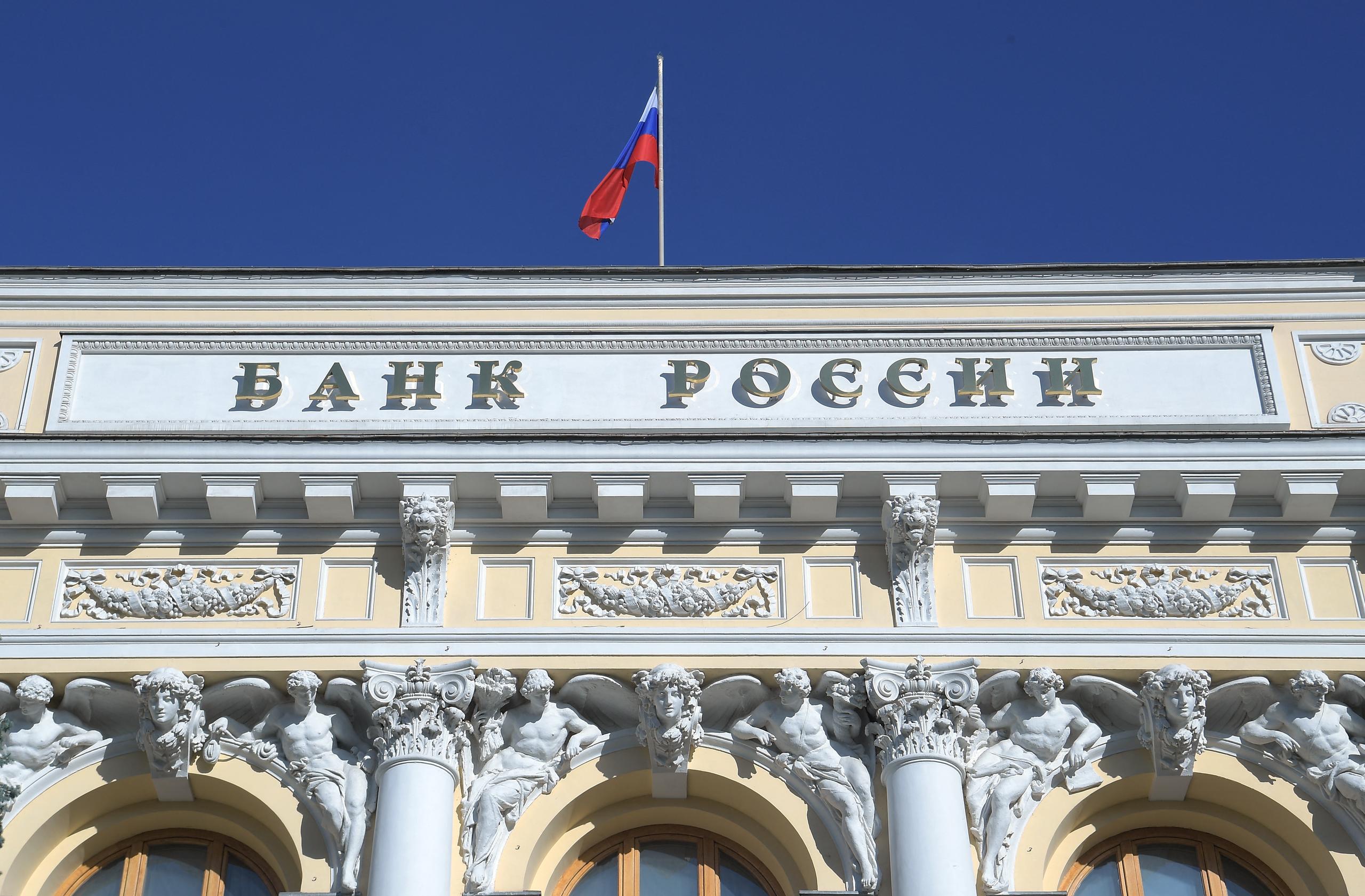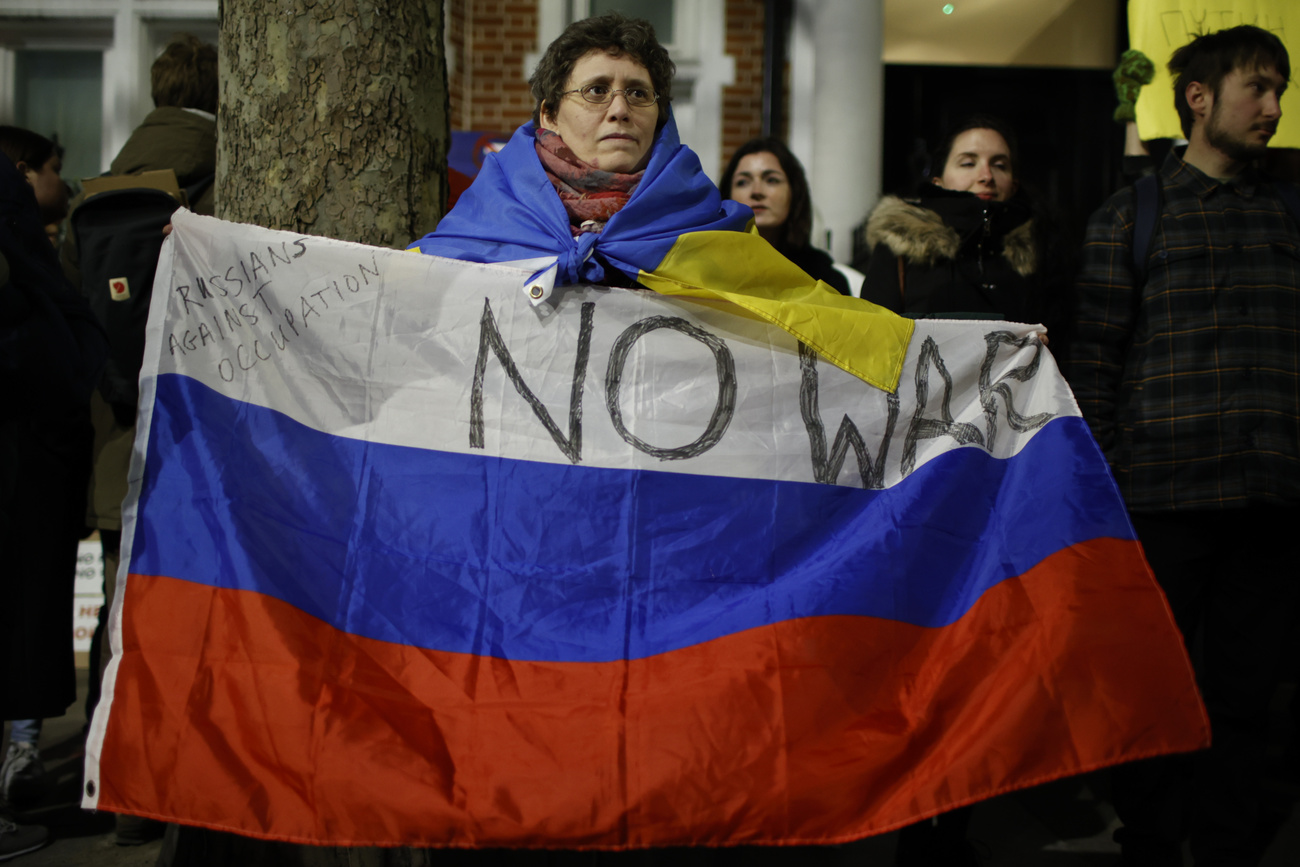
Explained: the financial sanctions against Russia

The West is tightening economic sanctions on Russia. The assets of the Central Bank of Russia are now also to be frozen. This indirectly affects the Swiss National Bank. Here are the answers to some key questions.
What sanctions have been adopted so far?
Western states have already excluded the main Russian banks from the SWIFT payment services system. This will make it more difficult for Russian financial institutions to process international payments. The US has also barred American banks from acting as so-called correspondent banks for Russia’s major commercial bank, Sberbank.
What do correspondent banks do?
Correspondent banks enable cross-border payment transactions. Thus, if a Russian trader imports medicines from an American pharmaceutical company, they instruct their bank – for instance Sberbank – to credit the seller with the purchase price. The problem is, though, that most American companies do not have an account with Sberbank, so the latter cannot directly transfer money to the American pharmaceutical company. However, Sberbank can arrange for some of its own funds to be credited to the pharmaceutical company’s bank. To do this, it uses an intermediary bank, known as a correspondent bank, where both Sberbank and the American pharmaceutical company’s bank have accounts. The pharmaceutical company’s bank then credits the incoming payment from Sberbank to the seller’s account. Without a correspondent bank, Sberbank would be unable to make this dollar transfer.

More
Switzerland backs full EU sanctions against Russia
What financial sanctions are still under discussion?
The US wants to freeze the foreign exchange reserves of the Central Bank of Russia. This would be one of the toughest financial sanctions ever. Measures of this kind have so far only been imposed on a few countries, such as Iran and North Korea. The sums involved would amount to some $460 billion-$630 billion (CHF422 billion-CHF578 billion), depending on the calculation criteria. The consequences would be drastic. The Central Bank is currently buying Russian roubles with its foreign currency reserves, in order to stabilise the price of the rouble, which has lost over 30% of its value since the start of the invasion. If the Central Bank were no longer able to sell its foreign currency reserves, the rouble would depreciate even further.
How do the financial sanctions affect the Russian state?
Raising funds is now more expensive for Russia, as many international investors are no longer allowed to buy Russian government bonds because of the sanctions. This reduces the number of people lending money to Russia. Interest rates on Russian government bonds have risen sharply in recent days.
How do the financial sanctions affect the Russian population?
The fact that the rouble has lost more than 30% of its value since the invasion means higher import prices, for example for medicines. But not only that: because many domestic products rely on imported intermediate goods, their prices are also affected by the rouble’s depreciation. We are likely to see a devaluation of the Russian currency in the coming weeks.
How has Russia reacted?
On February 28 the Central Bank of Russia raised its interest rates from 9.5% to 20%. The aim is to keep investment in Russia attractive despite the war and thus stem the outflow of funds from the country. Exporters are now also obliged to sell part of their foreign currency earnings. Russian citizens are effectively being forced to hold roubles. On Wednesday Sberbank said it was quitting almost all European markets, blaming big cash outflows and threats to its staff.
How does all this affect the Swiss National Bank’s monetary policy?
The Swiss franc has hardly moved since the Russian invasion of Ukraine. It currently stands at around 1.035 per euro. This stability is unusual: in times of crisis the franc is regarded as a safe haven and tends to appreciate. Experts speculate that the Swiss National Bank is countering appreciation by buying foreign currency. The Swiss National Bank does not always disclose its foreign exchange interventions in real time.
Fabio CanetgExternal link earned his doctorate on monetary policy at the University of Bern and the Toulouse School of Economics. Today he is a MAS lecturer at the University of Bern. As a journalist, he works for the political discussion programme SRF Arena, the online magazine Republik and SWI swissinfo.ch. He hosts the monetary policy podcast GeldcastExternal link.
(Translated from German by Julia Bassam)
Swiss Solidarity has launched a fundraising campaign to help cope with an expected humanitarian crisis in Ukraine. Donations can be paid via postal account 10-15000-6, adding the words “Crisis in Ukraine”.
In a first phase, the money will be used to help refugees in countries neighbouring Ukraine, notably in Poland. Swiss Solidarity works with charities and aid organisations, including Caritas, HEKS/EPER, the Swiss Red Cross, Helvetas, Medair, Médecins Sans Frontières and the Terre des hommes foundation.
If possible and if necessary, aid projects will also be supported in Ukraine.
The money goes exclusively towards humanitarian aid.
Swiss SolidarityExternal link is an independent foundation. It was born from a programme by the French-language public radio and is now the humanitarian arm of the Swiss Broadcasting Corporation, the parent company of SWI swissinfo.ch.

In compliance with the JTI standards
More: SWI swissinfo.ch certified by the Journalism Trust Initiative





























Join the conversation!